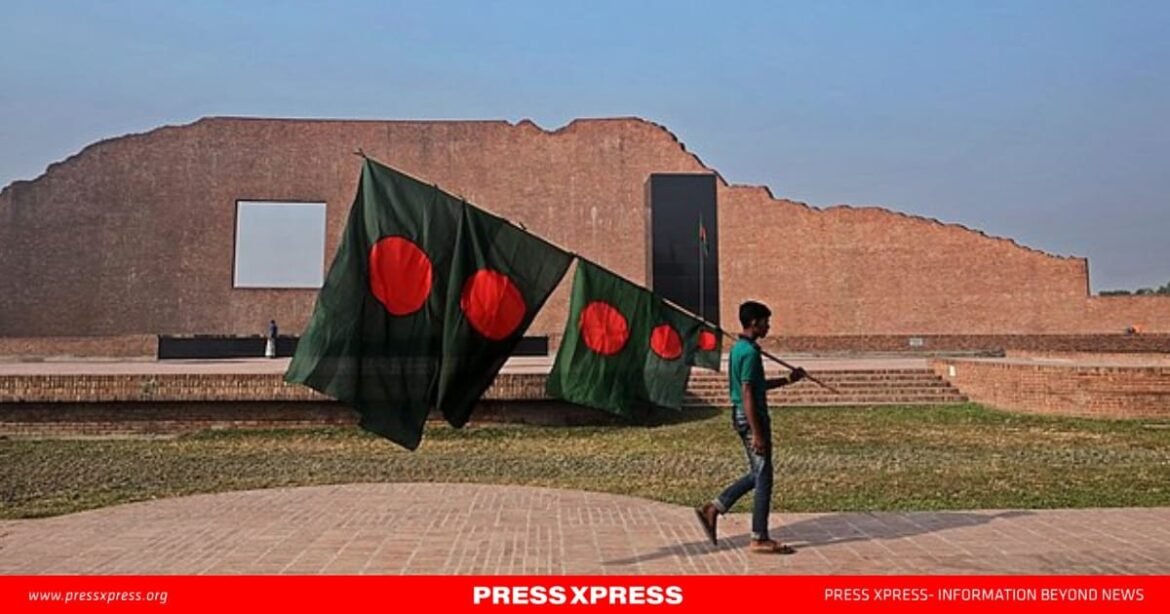December 14, 1971, remains a haunting date in Bangladesh’s history. On this day, during the final days of the Liberation War, over a thousand intellectuals were abducted and murdered by the Pakistani military and their local collaborators —the Razakars, Al Badr and Al Shams. These were not just random victims; they were the country’s future — teachers, journalists, doctors, and thinkers who had dedicated themselves to the cause of independence. Their deaths were a deliberate attempt to crush the intellectual backbone of a free Bangladesh.
More than five decades later, the ideals that these intellectuals fought for — democracy, justice, and freedom of thought — are in danger of being overshadowed. Many feel that the government of today, despite its claims of progress, is slowly erasing the very spirit of 1971, the spirit that gave birth to this nation.
The Intellectual Massacre: A Blow to Bangladesh’s Future
The murders of December 14 were not random acts of violence. They were part of a calculated effort to eliminate the minds that would guide an independent Bangladesh. These intellectuals had a vision for the future — a vision of a Bangladesh where democracy would thrive, where people would be free to speak their minds and live without fear. In the aftermath of their deaths, the nation had to rebuild itself without the knowledge, creativity, and leadership these people would have provided.
Unfortunately, their legacy has not been fully honored. Over time, the narrative of their sacrifices has been diluted, and the values they held dear — intellectual freedom, justice, and democracy — have been compromised.
It would not have been possible for the Pakistan military to kills these people in an attempt to wipe out the country’s intelligentsia, without the direct help of the members of the collaborator Razakar, Al Badar and Al Shams forces.
Persons involved in the killing of the intellectuals are also on trial at the international criminal tribunal (ICT), trying the war criminals of 1971. In 2013 Jamaat-e-Islami’s assistant secretary general Abdul Qader Mollah was handed for killing poet Meherunnessa and journalist Abu Taleb. Ali Ahsan Mohammed Mojahed and Matiur Rahman Nizami were hanged for involvement in the intellectual’s killing. In 2013 the tribunal passed the death sentence on Chowdhury Moinuddin and Ashrafuzzaman, living in the UK and the US respectively.
Is Bangladesh Losing Its Way?
Today, Bangladesh is a country that often proudly claims its independence, but critics argue that the present interim government led by Dr Yunus is erasing the very foundations on which that independence was built. Critics point out that the government is using its power to suppress dissent and silence opposition voices.
In recent years, political repression has become more evident. Politicians, journalists, and activists who speak out against government policies find themselves under pressure. Some face harassment, imprisonment, or worse. Islamic radical forces are on rising, minorities facing increasing attacks. For many, these actions feel like a betrayal of the ideals for which the intellectuals gave their lives. The voices of dissent, once a vital part of Bangladesh’s democratic fabric, are being silenced under the guise of maintaining order and stability.
One of the most concerning aspects of this political shift is the increasing control over education and media. In schools and universities, the government’s influence over what students learn has grown. Textbooks that once promoted critical thinking, freedom, and democratic values are now being altered to reflect a more radical narrative. Universities, once vibrant centers of debate and intellectual freedom, are feeling the pressure of political interference. Some professors report being silenced or pushed out for their views, while others are careful to stay within the boundaries set by the state.
The media, too, faces growing restrictions. Journalists who dare to challenge the official line find themselves targets of legal action, intimidation, or physical threats. In the face of growing pressure, some media outlets have toned down their criticism or even self-censored. This is a far cry from the Bangladesh envisioned by those who fought for independence in 1971, a country that was supposed to be built on the foundation of freedom of thought and expression.
As Bangladesh is commemorating the anniversary of the 1971 massacre today, it is important to reflect on the sacrifices made by those intellectuals who gave their lives for a better Bangladesh. The challenge today is to ensure that their vision — a vision of democracy, equality, and intellectual freedom — continues to guide the country.
Upholding the Legacy of 1971
Bangladesh has made significant strides since its independence, but the true measure of its progress lies in how it treats its people — especially those who challenge the status quo. If the interim government continues down the path of suppression and control, the country risks losing the essence of what it was meant to be: a free and democratic nation, guided by the principles of justice, equality, and intellectual freedom.
To truly honor the memory of the intellectuals of 1971, Bangladesh must reclaim its commitment to these values. Only then can it ensure that the sacrifices of the past are not forgotten, and that the spirit of 1971 continues to guide the nation toward a brighter, more democratic future.


